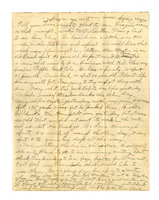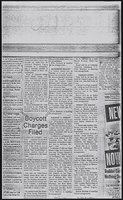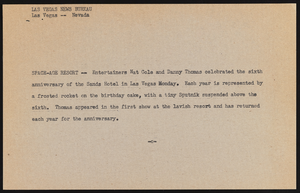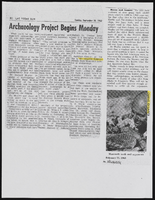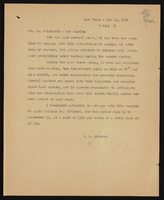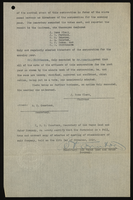Search the Special Collections and Archives Portal
Search Results
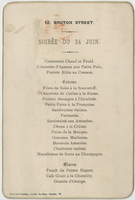
Private home in London, evening party, menu, June 24
Date
Archival Collection
Description
Text

Relda W. Leavitt interview, March 18, 1976: transcript
Date
Archival Collection
Description
On March 18, 1976, collector David Steele Broussard interviewed Relda Whitney Leavitt (born April 3rd, 1917 in Saint Thomas, Nevada) at her home in Las Vegas, Nevada. In this interview, Mrs. Leavitt discusses growing up in Saint Thomas, Nevada before her family moved to Las Vegas. She also discusses moving to Las Vegas, Nevada and her family’s dairy business in Whitney, Nevada. She speaks about the different changes and growth she has seen in Las Vegas over the years.
Text

Program from event at Treasure Island at the Mirage, Tenth Anniversary Scholarship Benefit for the Meadows School, May 20, 1994
Date
Archival Collection
Description
The "Presidential Evening" event at Treasure Island was held to raise funds for the Nat Hart Scholarship Endowment Fund and General Scholarship Fund for the Meadows School in Las Vegas.
Text
Fedora Bontempi Simpkin Photograph Collection
Identifier
Abstract
The Fedora Bontempi Simpkin Photograph Collection (1970-1983) consists of black-and-white and color photographic prints depicting Clark County, Nevada Mother's Day Celebrations and mother of the year award ceremonies. Pictured honorees include Grace Hayes, Frances Liberace, and Joyce Straus. Other images include Fedora Bontempi Simpkin with Nevada Senator Howard W. Cannon and Nevada Governor Richard Bryan.
Archival Collection
